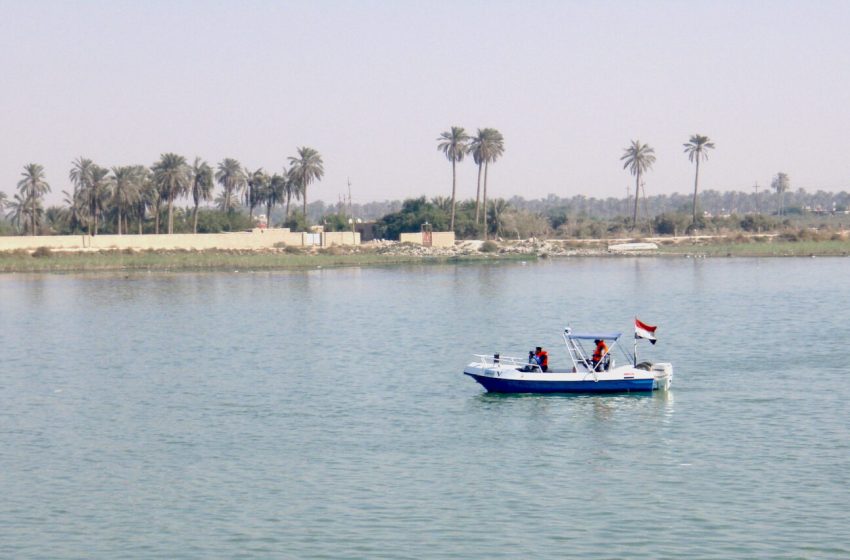Iraq to deal with the Shatt Al-Arab’s high salinity

A boat in the Shatt Al-Arab river. Photo: Ken & Nyetta/Wikimedia Commons
Baghdad (IraqiNews.com) – The Iraqi Ministry of Water Resources announced on Monday it recorded a significant increase in the salinity rate of the Shatt al-Arab river recently, and while it identified the reason, it affirmed that urgent steps were taken to deal with the salinity increase, according to the Iraqi News Agency (INA).
The Shatt al-Arab is a 200-kilometer-long river formed at the confluence of the Euphrates and Tigris rivers in the town of Al-Qurnah in Basra governorate in southern Iraq.
The Director of Water Resources in Basra governorate, Juma Shayyaa, said that a significant increase in salinity of the waters of the Shatt Al-Arab have been recorded recently, and the main reason for this increase is the tide coming from states of the Arab Gulf, including UAE, Saudi Arabia, Oman and Iran, are due to climate changes.
Shayyaa clarified that climate changes such as rain and floods that occur these days in the Arab Gulf countries affected Basra governorate in a large and direct way because the Shatt Al-Arab is directly linked to the Arabian Gulf.
Shayyaa indicated that the tide in such weather is enormous and very high, so the salinity rate in the Shatt al-Arab waters increases.
Shayyaa explained that the high percentage of salinity in the waters of the Shatt al-Arab represents a big problem and has a negative impact on the people in Basra in terms of pollution, diseases and fish deaths.
Shayyaa elaborated that measures are taken to reduce the negative impacts of the high salinity in the Shatt Al-Arab waters such as increasing the water releases, as it reached 94 cubic meters per second, in addition to directing the employees of the Basra Water Directorate not to use the Shatt al-Arab water completely during this period, and to use of the waters of the Shatt Al-Arab irrigation canal during the next two months.
